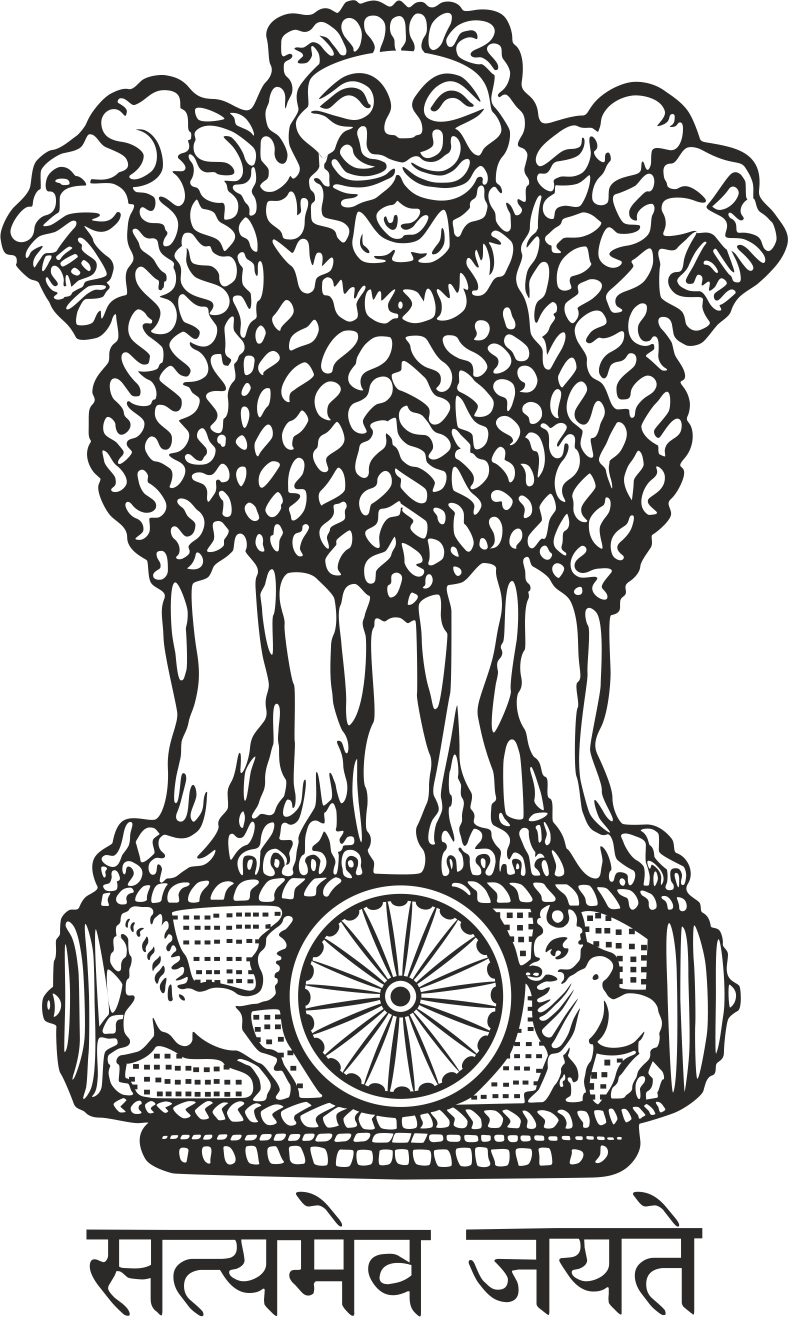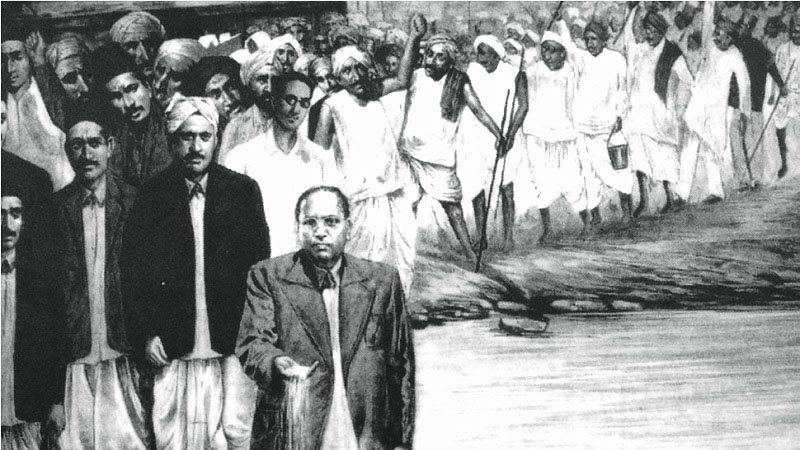Mahad Satyagraha
The Mahad Satyagraha, which took place in 1927 in the town of Mahad in Maharashtra, India, stands as a seminal moment in the history. Led by Dr. B.R. Ambedkar, this nonviolent protest marked a significant step towards achieving social justice, equality, and civil rights for the Dalit community in India.
The Social Battle
The oppressed castes (called as Depressed Classes in colonial regime or ex- untouchables) have faced severe discrimination, segregation, and social ostracism in Indian society for centuries. Access to public resources such as water bodies, temples, and schools was often denied to them, perpetuating their social, political and economic marginalization.
The Mahad Satyagraha was a response to these injustices and aimed to challenge the deeply ingrained caste-based discrimination. As a leader of the Depressed Classes, Dr. Ambedkar was at the forefront of opposing the ideology of the caste system. He believed that India not only requires political reform, but also social reform. An effective strategy to fight social inequality while the struggle for freedom was ongoing was important for him. As he summarized in Annihilation of Caste (1936): “That political reform cannot with impunity take precedence over social reform in the sense of the reconstruction of society, is a thesis which I am sure cannot be controverted.”
The Legal Background
On 4 August 1923, SK Bole, a social reformer, moved a resolution in the Bombay Legislative Council, which provided that “the council recommends that the untouchable classes be allowed to use all public watering places, in dharamshala which are built and maintained out of public funds administered by parties appointed by government or created by statute, as well as public schools, courts, offices and dispensaries.” Following the resolution, a direction was issued by the Bombay government to the heads of all the departments on 11 September 1923 to give effect to the resolution so far as it relates to the public places and editions, belonging to and maintained by the government. Thereafter, the Mahad Municipality passed a resolution to open the Chavdar tank for the Depressed Classes. However, the municipality’s resolution could not be implemented, as the Depressed Classes were unable to access water from the Chavdar tank due to opposition from the oppressor castes of that area.
To overcome the denial of rights, the Kolaba District Depressed Classes in coordination with Dr Ambedkar and Bahiskrit Hitkarini Sabha decided to hold a conference in Mahad on 19-20 March 1927. Consequently, thousands of members of the Depressed Classes gathered in Mahad to participate in the Satyagraha. On March 20, 1927, Dr. Ambedkar and his followers marched to the Chavdar Lake, where he drank water from it, asserting their right of equality and equal access to public resources. This act sent shockwaves through the conservative society. The oppressor castes even performed a purification ritual of the tank, which according to them had been defiled by the touch of the Untouchables. Under pressure from the oppressor castes, the Mahad Municipality on 4 August 1927 revoked its resolution of 1924 under which it had declared the Chavdar Tank open to the Depressed Classes.
Dr Ambedkar then decided to launch another Satyagraha in December 1927 in Mahad to assert the rights of the Depressed Classes. However, the oppressor castes initiated a legal action against Dr. Ambedkar and his colleagues on 12 December 1927 in the Mahad civil court, seeking issuance of a temporary injunction. On 14 December, the court granted a temporary injunction, which prohibited Dr. Ambedkar, his colleagues, and members of the Depressed Classes or those acting on their behalf, from accessing the Chavdar Tank until further orders were issued. Dr. Ambedkar however decided to continue his proposed Satyagraha during 25-27 December, even though he decided to not go to the Tank till the pendency of the civil suit. On 25 December 1927, Dr. Ambedkar, while addressing the people of the Depressed Classes, stated:
“It is not as if drinking the water of the Chavdar Lake will make us immortal. We have survived well enough all these days without drinking it. We are not going to the Chavdar Lake merely to drink its water. We are going to the Lake to assert that we too are human beings like others. It must be clear that this meeting has been called to set up the norm of equality.”
Dr Ambedkar and his supporters also burnt a copy of ‘Manusmriti’ to symbolically reject the foundations of the caste system. The gathering also passed certain resolutions towards equality, non-discrimination, and equal access to resources.
The Legal Verdict
In the civil suit, the defendants including Dr Ambedkar argued that the tank belonged to the Mahad Municipality and should be open to all. The trial court ruled against the plaintiffs, stating that they failed to prove a longstanding custom excluding untouchables from using the tank, and that this custom did not qualify as a legal right. The case was dismissed in 1937.
An appeal was filed against the decision, but the Assistant Judge, Thana affirmed the lower court's ruling. The judge held that there was no evidence or legal basis to support the exclusion of untouchables from using the tank. Subsequently, the plaintiffs appealed to the Bombay High Court. The High Court also dismissed the appeal in 1937.
Thus, after almost 10 years of struggle, Dr. Ambedkar was able to secure legal victory for his people.
Court Documents (Credit - Bombay High Court)
Narhari Damodar Vaidya Vs. Dr. Bhimrao Ramji Ambedkar.
Sources:
- Vasant Moon (eds.), Dr. Babasaheb Ambedkar Writings And Speeches, (Dr. Ambedkar Foundation, Ministry of Social Justice & Empowerment, Govt. of India, 2019) (Re-print)
- Dhananjay Keer, Dr. Ambedkar Life and Mission, (Popular Prakashan, 2019 Re-print)
- Narendra Jadhav, Ambedkar: Awakening India's Social Conscience, (Konark Publishers Pvt. Ltd., 2014).
- Anurag Bhaskar, Foresighted Ambedkar: Ideas That Shaped Indian Constitutional Discourse, Penguin (Forthcoming in 2024)
- Ashok Gopal, A Part Apart: Life and Thought of B.R. Ambedkar, (Navayana Publishing Pvt. Ltd., 2023)


